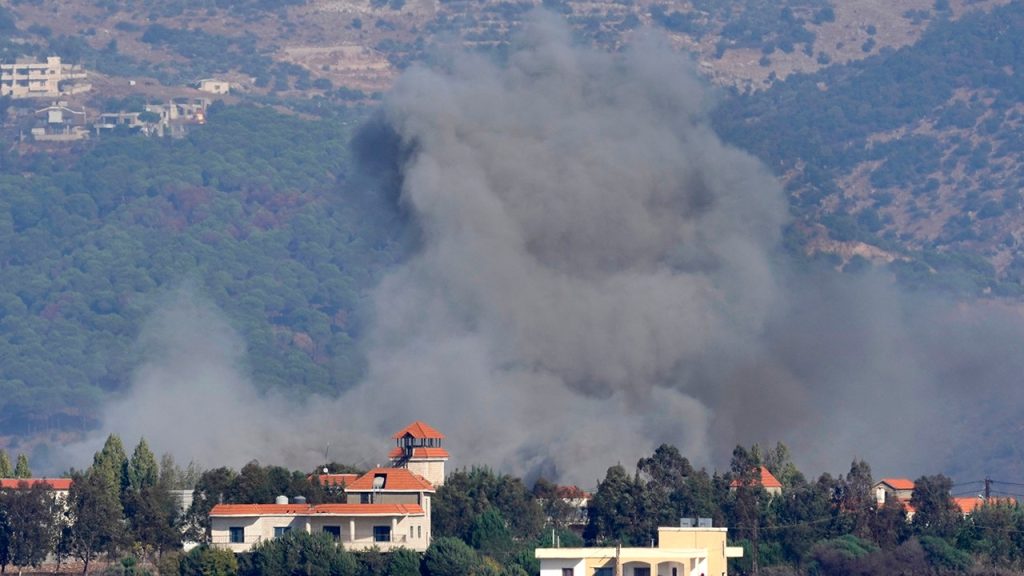Israel has launched a series of airstrikes against Hezbollah in Lebanon following an attack by Hezbollah on Tel Aviv. Hezbollah claimed to have launched a ballistic missile towards the Mossad intelligence agency headquarters, prompting millions of residents in Tel Aviv to seek shelter in bomb shelters. Israel managed to intercept the missile, and the exchange of attacks occurred after Israel killed a top Hezbollah commander in Beirut. The Israeli military has stated that they will take any necessary measures to repel Hezbollah but are not seeking an all-out war.
Following the killing of the Hezbollah commander, Israel conducted a two-day bombing campaign targeting Hezbollah cells and weapons caches in Lebanon. At least 560 people were reportedly killed in these attacks. Israel has conducted five targeted airstrikes in Beirut since the beginning of the Israel-Hamas War, with three of them happening in the last five days. One of the strikes killed Ibrahim Aqil, the head of Hezbollah’s operations and commander of its Radwan Force. These targeted strikes are seen as part of Israel’s efforts to respond to Hezbollah’s aggression.
In response to the escalating tensions, the U.S. announced the deployment of additional American troops to the Middle East. With already 40,000 troops in the region, the U.S. is sending more personnel as a precautionary measure in light of the increased tension. Israeli Prime Minister Benjamin Netanyahu reiterated that Israel’s conflict is not with the people of Lebanon but with Hezbollah, who are using civilians as human shields. Netanyahu urged the people of Lebanon to distance themselves from Hezbollah to avoid harm.
The ongoing conflict between Israel and Hezbollah has raised concerns about a potential escalation into a wider regional conflict. While Israel has vowed to repel Hezbollah from their northern border, they are not seeking a full-scale war. The airstrikes and attacks conducted by both sides have resulted in casualties and heightened tensions in the region. The U.S. deployment of additional troops is aimed at maintaining stability and security in the Middle East amidst the escalating conflict between Israel and Hezbollah.
The exchange of attacks between Israel and Hezbollah highlights the complex and volatile situation in the region. Both sides have engaged in targeted airstrikes and attacks, resulting in casualties and fears of further escalation. The involvement of the U.S. with the deployment of additional troops underscores the international concern over the conflict and the need for de-escalation. The Israeli government has emphasized that their conflict is with Hezbollah and not the people of Lebanon, urging civilians to distance themselves from the militant group to avoid harm.
The ongoing conflict between Israel and Hezbollah in Lebanon has led to a series of airstrikes and attacks, with casualties on both sides. The U.S. has deployed additional troops to the region to maintain stability amidst escalating tensions. The Israeli government has made it clear that their conflict is with Hezbollah and not the people of Lebanon, urging civilians to distance themselves from the militant group to avoid being used as human shields. The situation remains fluid and volatile, with concerns about a potential escalation into a wider regional conflict.













